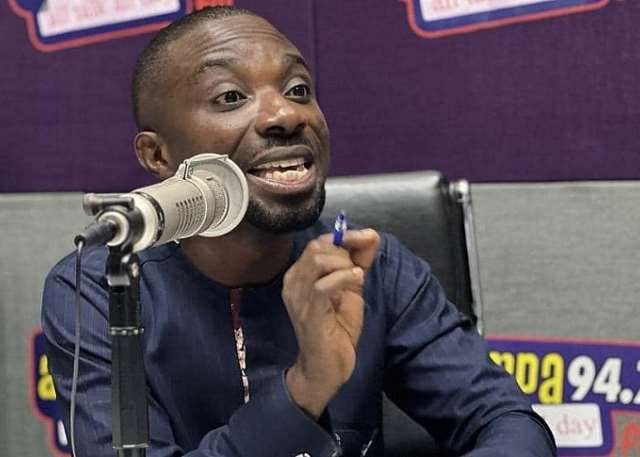The energy sector in Ghana has been a subject of political debate, with Dennis Miracles Aboagye, a member of the New Patriotic Party (NPP) communications team, asserting that the current administration inherited a heavily indebted and unstable energy sector from the previous John Mahama-led National Democratic Congress (NDC) government. Aboagye contends that despite inheriting this challenging situation, the Akufo-Addo-led NPP government managed to maintain a stable power supply for the majority of its tenure, barring an eight-week period of crisis. He attributes the previous instability to a $2.5 billion debt accrued under the NDC, primarily due to what he terms “poorly negotiated” Independent Power Producer (IPP) contracts, specifically “take or pay” agreements. These agreements, according to Aboagye, obligated Ghana to pay for power generation capacity even if it wasn’t utilized, placing the country at risk of significant financial penalties if the contracts were reviewed or renegotiated. He criticizes the current Mahama administration for what he perceives as inaction in addressing the current challenges of erratic power supply, highlighting the negative impacts on businesses, hospitals, factories, and citizens.
Aboagye’s claims paint a picture of a struggling energy sector handed over to the NPP in 2017, burdened by substantial debt and contractual obligations that limited the government’s flexibility in managing power generation. He argues that despite these constraints, the NPP government successfully navigated the complexities of the sector for the majority of its term, ensuring a reliable power supply for Ghanaians. The eight-week period of power instability, which Aboagye acknowledges, represents a blemish on the NPP’s record, but he frames it as an exception rather than the rule. He contrasts this with the perceived current struggles under the NDC, suggesting a lack of effective action and a return to the instability experienced during the previous NDC administration. This narrative seeks to portray the NPP as competent managers of the energy sector, capable of overcoming inherited challenges, while depicting the NDC as ineffective and responsible for the current difficulties.
The core of Aboagye’s argument rests on the “take or pay” nature of the IPP contracts signed under the NDC. These contracts, he suggests, locked Ghana into agreements to purchase power regardless of actual demand, leading to financial strain and limiting the government’s ability to adjust power generation based on real-time needs. This, according to Aboagye, contributed significantly to the $2.5 billion debt inherited by the NPP. Furthermore, he claims that the contracts were poorly negotiated, placing Ghana at risk of judgment debts if they were to be reviewed. This portrays the NDC as fiscally irresponsible and lacking in foresight, further strengthening the NPP’s narrative of competent management contrasting with the NDC’s alleged mismanagement.
The current power supply challenges, characterized by erratic outages, form the backdrop against which Aboagye criticizes the current Mahama administration. He points to the negative impacts on various sectors of the economy and on the daily lives of citizens, emphasizing the urgency of the situation. By highlighting the suffering of businesses, the difficulties faced by hospitals, the reduced capacity of factories, and the disruption to citizens’ sleep, Aboagye aims to create a sense of urgency and underscore the perceived inaction of the government. He draws a direct link between the current power issues and the NDC’s past performance in the energy sector, fueling anxieties about a return to the more prolonged periods of power outages experienced previously.
The Ministry of Energy’s response, assuring the public of sufficient generation capacity, directly contradicts Aboagye’s narrative. The Ministry’s assertion that there is no need for a load-shedding timetable suggests that the power supply challenges are manageable and do not warrant the drastic measures implied by a formalized schedule of outages. This contrasting perspective highlights the political dimension of the energy debate. While Aboagye and the NPP seek to portray the current situation as a crisis requiring immediate action and implicating the NDC’s management, the Ministry of Energy, representing the current administration, aims to project an image of control and stability, downplaying the severity of the challenges.
In essence, the ongoing debate surrounding Ghana’s energy sector reflects a broader political struggle between the NPP and the NDC. Each party seeks to position itself as the more competent manager of this critical sector, using the current challenges and past performance as ammunition in their respective narratives. Aboagye’s statements represent a clear attempt to highlight the NPP’s perceived successes in managing the energy sector during its tenure while simultaneously criticizing the NDC’s past and present performance. The Ministry of Energy’s response, on the other hand, serves as a counter-narrative, aiming to reassure the public and downplay the severity of the current challenges. The ultimate judgment on which party is more capable of steering Ghana’s energy sector towards a sustainable and reliable future rests with the Ghanaian electorate.














